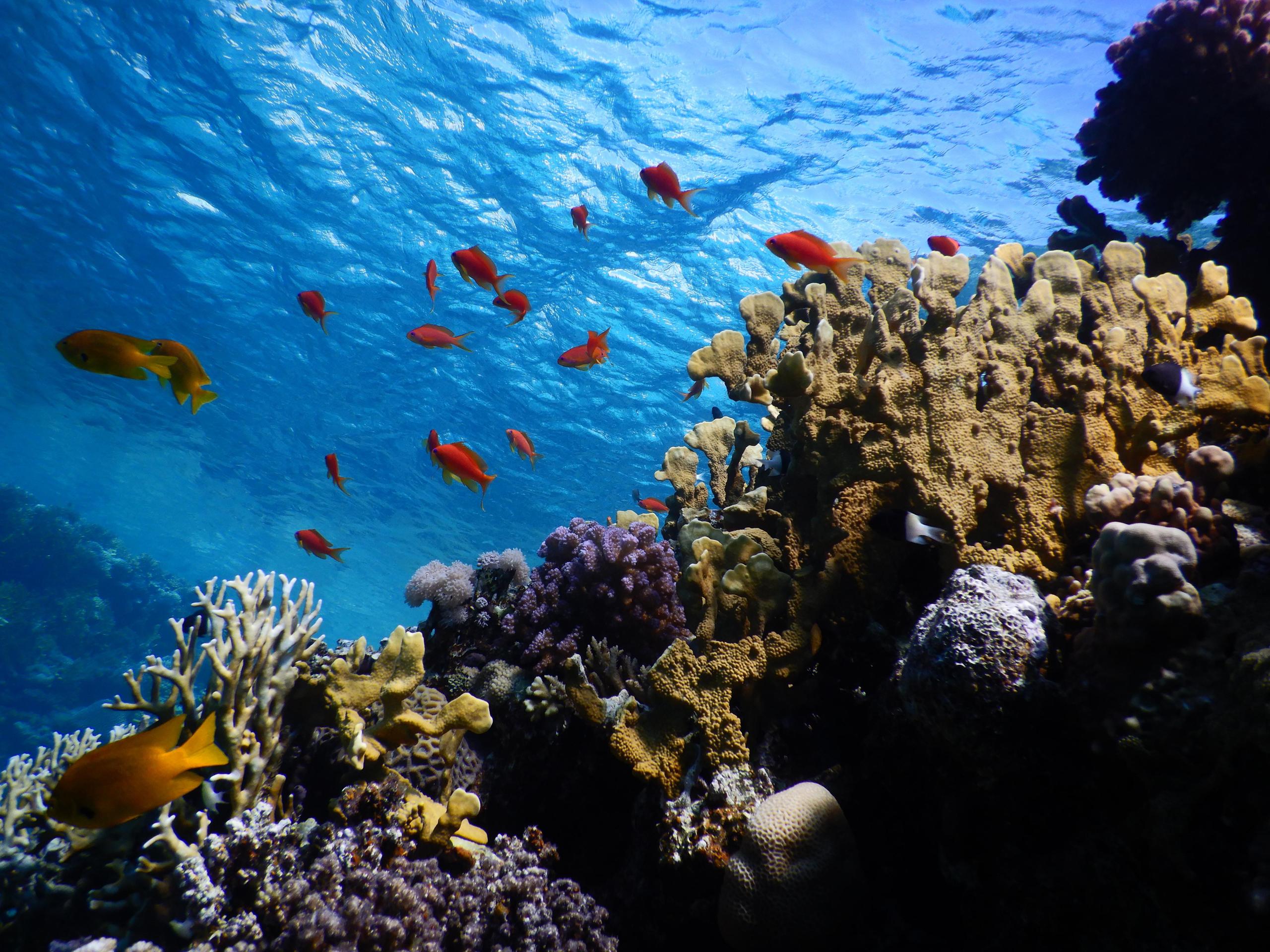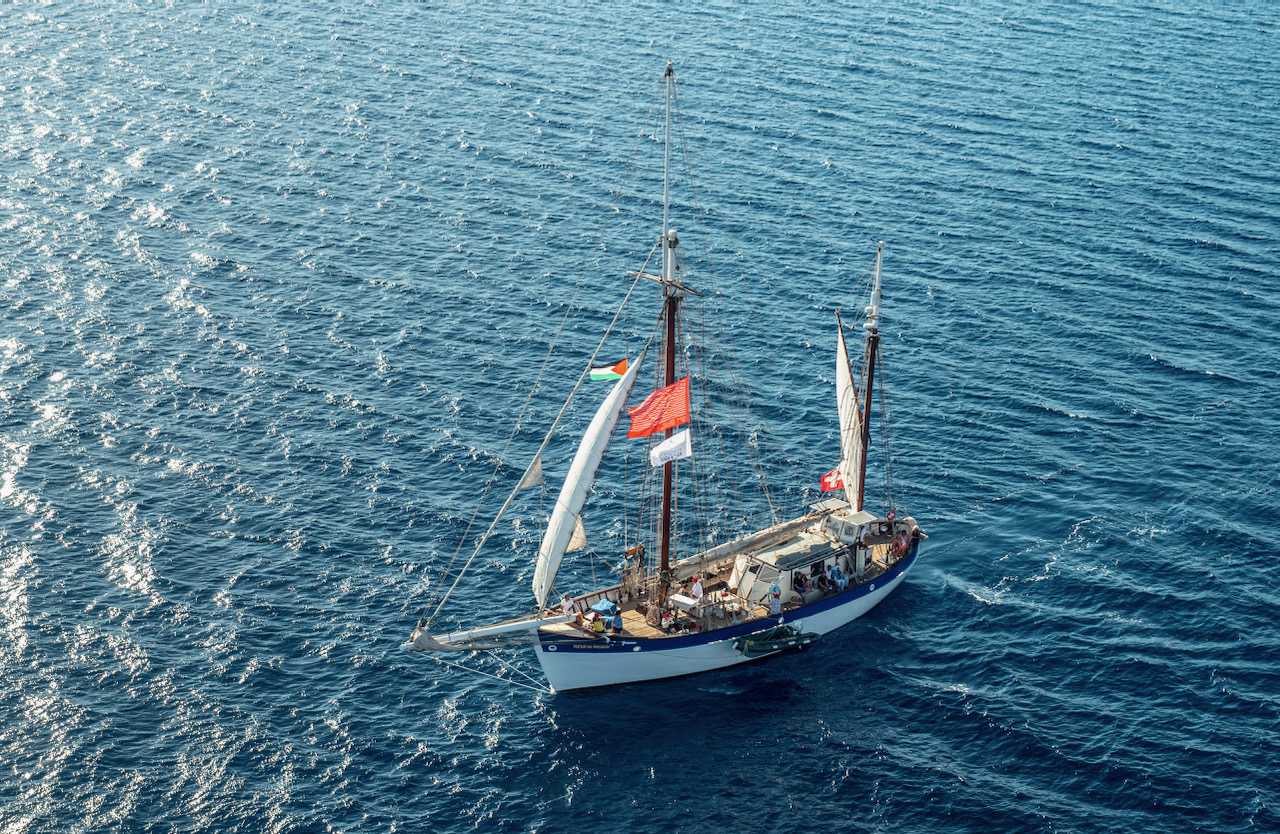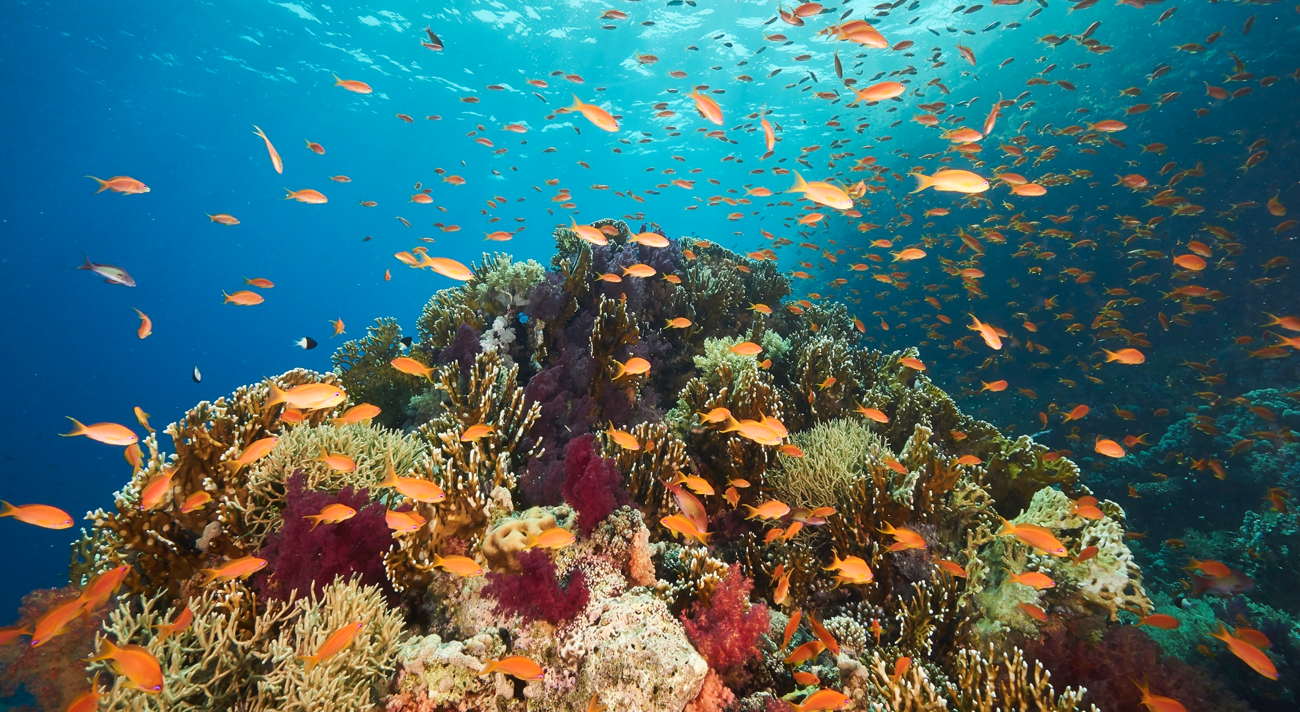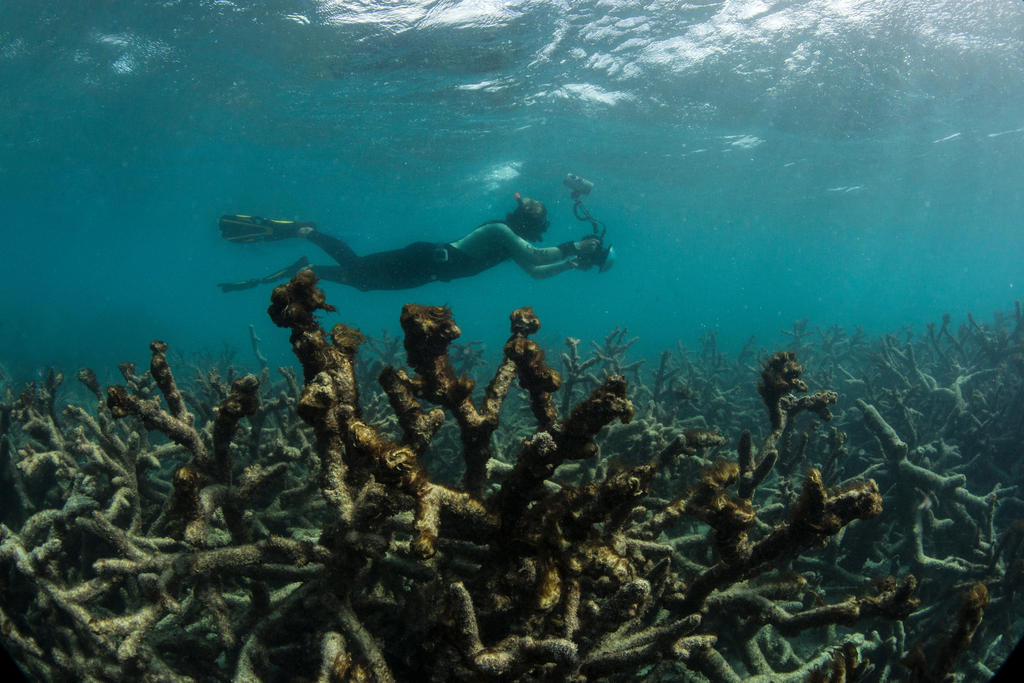Swiss scientific diplomacy sets sail to save corals

What makes coral found in the Red Sea resistant to rising temperatures? A Swiss-led research and diplomacy project aims to bring historically hostile countries in the region together to find out. The departure of the sailing ship "Fleur de Passion" on July 13 marked the start of this unique mission.
Nick is a coral polyp. Together with a myriad of his brothers, he has built a calcium carbonate structure of which he is particularly proud. Nick, however, has a problem: he’s hungry.
It’s been hot, very hot, for some time now. This stressed him out, so he got nervous and had a fight with his zooxanthellae, the single-celled algae with which he lived in symbiosis. Unceremoniously, they abandoned him, leaving him pale and, more importantly, hungry. If his zooxanthellae don’t return, he fears he won’t be able to survive for long.
The situation facing Nick, a proud coral reef builder, is not an isolated one. The phenomenon of coral bleaching is one of the most obvious and devastating effects of global warming.
If the water temperature rises, even by two degrees Celsius, the symbiosis between the coral and the algae that feed it and give it colour breaks down. The coral bleaches and, if the situation persists, dies.
This is why, along with well-known factors like pollution, overfishing or simple physical damage – half of the coral reefs have been lost in the last 30 years compared to pre-industrial times. Scientists believe that by 2050 only 10% of this ecosystem, one of the most valuable biodiversity treasure chests on the planet, will remain.
Super-corals
There is one place, however, where the symbiotic relationship between coral-building animals like Nick and the algae that sustains them seems to be holding up particularly well against rising temperatures: the Gulf of Aqaba.
Four years ago, a study showed that corals in this corner of the Red Sea don’t bleach even if the temperature rises by five degrees Celsius.
“It could be one of the last ‘reefs’ still alive at the end of the century,” explains Anders Meibom, a Danish scientist and director of the Laboratory of Biological Geochemistry at the Swiss Federal Institute of Technology in Lausanne (EPFL) and one of the authors of the study.
In 2017, Meibom launched an appeal, calling for this last coral “refuge” to be studied more thoroughly and for the governments of countries bordering the Gulf to cooperate to safeguard it.
But between saying and doing is not only the sea, but also geopolitics.
International cooperation
Many of the countries bordering the Gulf of Aqaba (Jordan, Israel, Egypt and Saudi Arabia) and the Red Sea have tense relations with each other. That’s where a unique Swiss project comes in.
The Transnational Red Sea Research Center (TRSC), led by Professor Meibom, was created in 2019 together with the EPFL to study and safeguard corals in the Gulf of Aqaba.
The project combines science and diplomacy and has the support of the Swiss Department of Foreign Affairs (FDFA), which is using the diplomatic tools at its disposal to convince all the countries bordering the Red Sea to cooperate.
“In Switzerland, a culture of good offices and an active peace policy are combined with a top-notch academic world,” Lukas Gasser, the Swiss ambassador to Jordan, tells SWI swissinfo.ch. According to the diplomat, these characteristics fit very well in the context of the Red Sea, where the protection of a unique marine ecosystem depends on cooperation between countries that “have experienced quite conflictual relations in recent decades”.
“Jordan has responded quickly and enthusiastically,” said the ambassador. “ We are also in contact with all the other countries in the region, who have welcomed our initiative with interest. There is still some persuasive work to be done, but we hope to convince them all.”
A diverse crew
At the end of June, a ceremony was held in Aqaba, Jordan, to mark that country’s participation in the initiative and to celebrate the concrete start of the scientific mission.
On July 13, an old minesweeper sailing ship built in Bremen during the Second World War set sail from Aqaba. This time it is carrying a team of international scientists instead of German marines.
The ship, re-named the “Fleur de Passion”, is the logistical base of the TRSC and will allow participating scientists to study the super-corals of the Gulf of Aqaba. The project also seeks to pave the way for transnational collaboration in the region and establish a training network for young scientists.

Four three-month expeditions are planned for the Fleur de Passion and its crew during the hottest period (July-September), once a year until 2024. This summer, the crew will consist of researchers from Switzerland, France, Israel, Britain and Sudan.
Unprecedented project
Specifically, researchers will conduct genetic analyses of corals, determine their thermal resilience, and analyse water quality throughout the Red Sea for the presence of microplastics, metals, and other organic pollutants.
The scope of the project is unprecedented. Studies carried out in the region to date have so far had a local focus and were conducted using different methodologies. This made the findings difficult to compare.
The TRSC wants to generate a consistent dataset that can serve as a reference standard for all future ecosystem studies across the Red Sea. The results will be made available to all researchers and can be used to assess the environmental impact of future or existing projects in the region.
“The Red Sea is small and Gulf of Aqaba is even more so. Any form of pollution would spread quickly, without recognising any national boundaries, and would kill corals indiscriminately,” warns Meibom, who adds that “Aqaba’s corals represent humanity’s last chance to preserve coral reefs for future generations, but this requires a strategic effort on a regional and transnational level”.
If diplomacy in the region succeeds, it may not be too late for Nick the polyp. His fellow species in the Red Sea could provide cooperating scientists valuable information to ensure that coral reefs don’t become a thing of the past.

More
Red Sea coral spotlights Swiss ‘Science Diplomacy’

In compliance with the JTI standards
More: SWI swissinfo.ch certified by the Journalism Trust Initiative













You can find an overview of ongoing debates with our journalists here . Please join us!
If you want to start a conversation about a topic raised in this article or want to report factual errors, email us at english@swissinfo.ch.